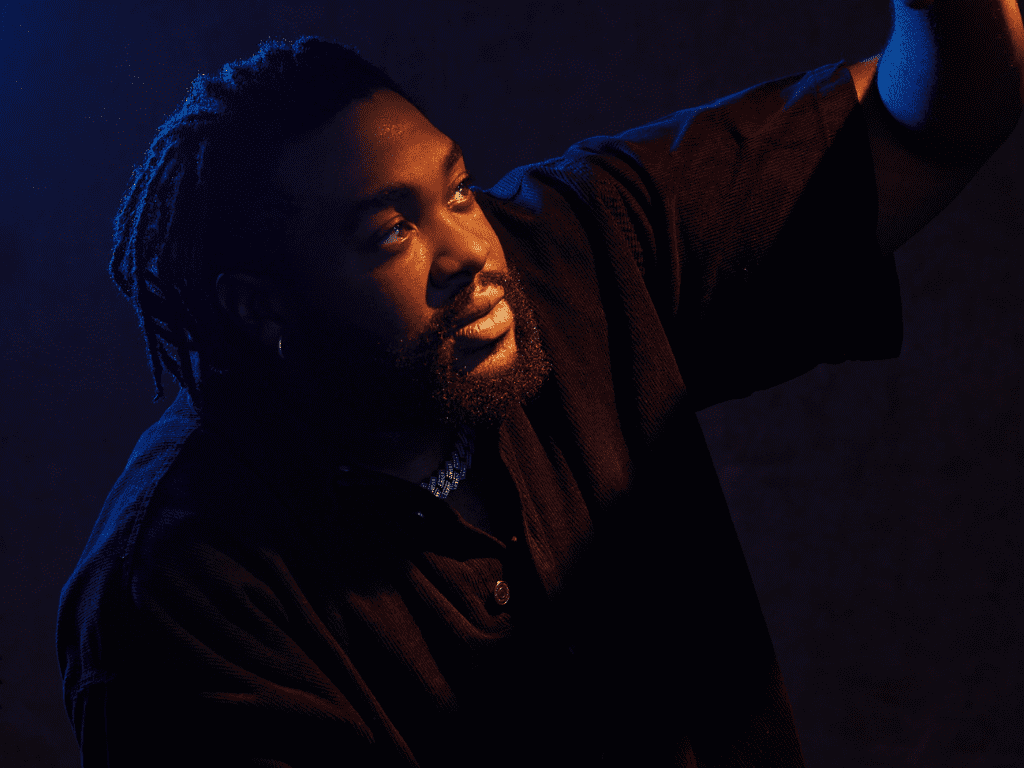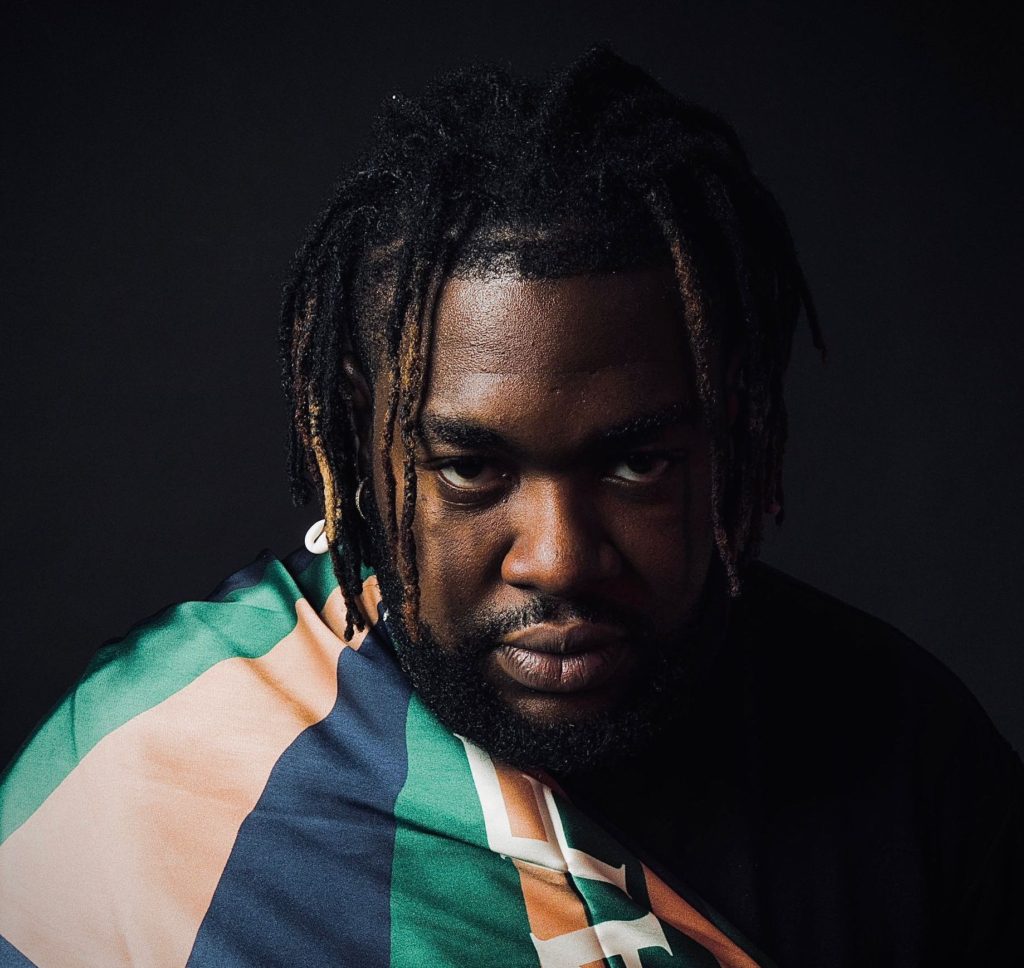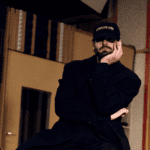
Today, we’re thrilled to welcome Zubi, the London-based alternative soul powerhouse who has been capturing hearts and stirring emotions with his unique sound. Zubi’s latest single, “NEPA,” is a slow-burning ballad that plunges deep into the raw emotions of betrayal and retribution. As he gears up for his highly anticipated album Ghost of the Buj, this new track follows the success of last autumn’s Journey to Idan project, which earned him widespread acclaim from critics and fans alike.
With “NEPA,” Zubi delves into a profoundly personal experience of emotional turmoil, channeling his pain and anger into a powerful anthem that speaks to anyone who has faced the sting of betrayal. The song’s evocative lyrics and passionate delivery showcase Zubi’s ability to turn personal anguish into a universal story of struggle and catharsis.
Born in Abuja and now a fixture in London’s eclectic music scene, Zubi’s genre-defying blend of alternative soul and R&B has earned him over 300 million global streams and a dedicated following across the globe. From his early hits like “Sugar” and “Juju” to his evolving artistic journey, Zubi’s music continues to resonate with authenticity and emotional depth.
Join us as we dive into Zubi’s creative process, the inspiration behind “NEPA,” and what fans can expect from his forthcoming album.
Can you tell us about the inspiration behind your new single, “NEPA”? How did your personal experiences shape this track?
Thank you for having me. “NEPA” was inspired by the current dating culture, which I feel is at an all-time low. I think it has lost so much of what is important, like being vulnerable, being honest, and genuinely enjoying someone’s company. Personally, I have been in a few situations where these things were lacking or felt forced, and so I made “NEPA.“
Your new single follows the critically acclaimed ‘Journey to Idan’ project. How does “NEPA” build on or differ from your previous work?
I think the song to compare it to would be “Shady.” Just listen to “Shady,” and you’ll hear the difference in tone and the buildup in emotions.
You’ve mentioned that creating “NEPA” was a therapeutic process for you. Can you elaborate on how music serves as an outlet for your emotions?
Although this may be termed being avoidant or dismissive, I am not someone who really talks about emotions. I find my own peace in singing about it, and that’s my most authentic form of self-expression. I try to stay away from the back and forth of talking about it, so putting it in my music is how I let it be known without saying it and most times just letting it go.
What was the creative process like for “NEPA”? Did you face any challenges while composing and recording it?
I can’t lie, I had so much fun making NEPA. It was made with so much ease and no pressure at all. Just cruise.
Your music blends alternative soul and R&B with a distinct Afro spirit. How do your Nigerian roots influence your sound?
Growing up with an Igbo background, there’s a lot of storytelling in the music, and I’m heavily influenced by that. It’s very important to me that a story is being told with every track I put out.

Having grown up in Abuja and now living in London, how do these different environments impact your music and artistic expression?
Hmmmmmm, I’d say that growing up was a bit more chaotic than what I experience now living in London. I got to experience people more and in larger groups than here. My life in London is a bit more intimate; I feel like I’ve found my sanctuary here.
Can you share any insights into your upcoming album, ‘Ghost of the Buj‘? What themes and stories can listeners expect from it?
It’s going to show growth on every level; we are keeping it serious and professional without doing too much. I drew inspiration from my surroundings, so there are stories about love, friendship, whether real or fake, and interactions with people around me.
What do you enjoy most about being a musician, and what aspects do you find most challenging?
Honestly, I enjoy being in control of my process; whatever it is, I’m the one with the final say, and that feels great. I think in the beginning I had a few doubts, and they always made me frustrated, but I pushed through them. I also had to learn to stick to my vision and silence all the noise there was because, at the end of the day, this is my expression and not anyone else’s.
Can you name a few artists that have inspired you throughout your career and explain why?
Before I started music, listening to James Arthur really inspired me. I’d be feeling something, and every time I listened to him, I’d find my emotions in his songs.
I went to watch Masego live in 2019, and the following week I started music. I watched him, and I just knew I had to do this. Because I have a raspy voice, I’m very inspired by Jacob Banks. It’s like you have to listen to him or you’re missing out, which is the same thing I’d say about my music. And finally, Zubi brings the perfect blend of that African and international sound.
Looking back at your career so far, what are you most proud of, and what are your goals for the future?
I’m without a doubt most proud of myself for sticking it out this long, for pushing myself, and for finding my purpose. After university, I was almost lost in society, and music gave me direction, so I’m proud I followed. I don’t let myself think much about the future. All I have today I never saw coming, and there’s beauty in being surprised by it all. I’m very content with all I’ve been able to accomplish and experience. I’m just going through life and surviving day by day without too much focus on the destination of it all. I’m just grateful for it all as it comes.


